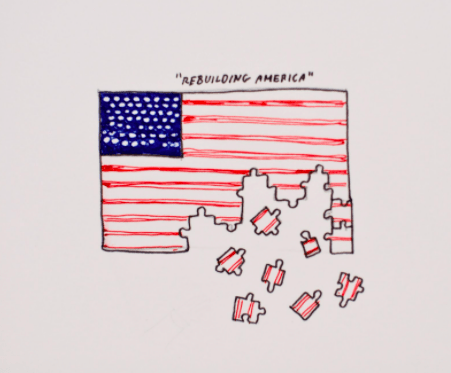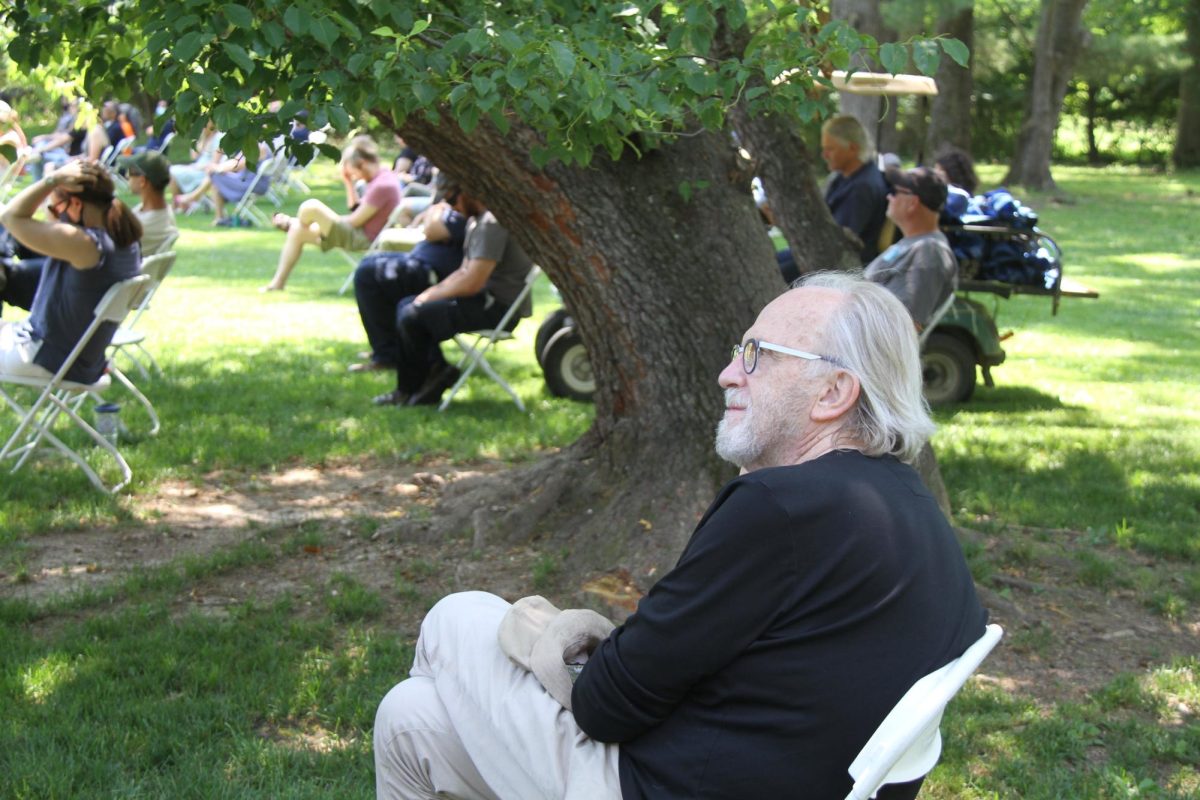Physically Apart, but Driven by Unity: Inauguration 2021

(Artwork/Ava Fong’23)
February 15, 2021
On Wednesday, January 20 at 12 PM EST, President Joseph Biden was officially sworn into office. Only minutes before that, Vice President Kamala Harris became the first Black and Asian-American female vice president.
On a typical Inauguration Day, large crowds of people would gather at the Capitol to observe, and cherish this event. This year, however, the crowds were limited due to the COVID-19 pandemic. The relatively small number of people that were there followed COVID-19 safety protocols, sitting in chairs distanced six feet apart, and wearing masks.
There was also a tremendous difference between the 8,000 soldiers at former President Donald Trump’s inauguration in 2017 and this year’s 26,000 National Guards gathered at the Capitol to protect the inauguration. The deployment of the National Guard was a response to the threats from the January 6 Capitol riot. Once the inauguration was over, most of these soldiers were permitted to return home over the next couple of days. However, approximately 7,000 personnel were to remain at DC at least until the end of January to offer additional support and protection against anything that could pose a threat to the Capitol and the President.
The newly sworn-in President gave a speech that summarized his plans for his presidency, which highlighted the idea of unity. “Without unity,” he said, “there is no peace, only bitterness, and fury. No progress, only exhausting outrage. No nation, only a state of chaos.” During a time when our country is more divided than ever before, the only way forward is if we move forward as one unified nation. As Head of Upper School Mr. Rhodes shared, “To overcome these divisions and emerge as a stronger and more just society, I agree with President Biden that we must all practice tolerance and humility. By accepting the humanity of others and our own shortcomings, we can focus our attention on finding solutions rather than blindly winning every dispute.” The Civil War, the Great Depression, September 11, and the recent Capitol riot were proof that while democracy is fragile and can be scratched, it can and will be repaired. We have already come so far, but we still have a long road ahead. Thus, we must learn from the past to make a better future for us all. Our President promised us that “Today, on this January day, my whole soul is in this: Bringing America together. Uniting our people. And Uniting our nation.” He concludes by calling for “every American to join me in this cause.”
At the inauguration were many notable guests, including renowned singer Lady Gaga, Jennifer Lopez, and others. But the crowds, both in person and through the screen, were also intrigued by Amanda Gorman. At 22 years old, Gorman is the youngest poet to perform at the inaugural ceremony. Her poem, “The Hill We Climb,” has influenced and inspired many people across the world. As Amanda Gorman explained, the purpose of her poem isn’t to discuss the past, but rather it is about how we, as a country, can come together and restore our nation “in a way that is not erasing or neglecting the harsh truths I think America needs to reconcile with.” Sophomore Madeline Weinstein noted that the poem was “extremely moving and eye-opening… something that everyone should take the time to listen to and benefit from.” In response to her favorite part, “The new dawn blooms as we free it/For there is always light,/if only we’re brave enough to see it/If only we’re brave enough to be it,” Maddie stated that “her words inspire listeners and gives us hope for the future.”
Although this year’s inauguration was very different from all the others, it will still go down in history and marked for its significance. Not a lot of people were there to witness it in action, but through the screens, people, not just Americans, were still able to watch, observe, and cherish this event. America’s democracy has been temporarily delayed, but this is only the beginning of a more perfect nation to come in the next four years.





